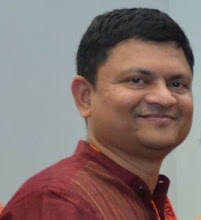Sakalya: Yadnyawalkya, how many gods are there?
Yadnyawalkya: According to the "Hymn of all the gods" there are 3306.
S: Yes, but how many gods are there?
Y: 33.
S: Yes, but how many gods are there?
Y: 6.
S: Yes, but how many gods are there?
Y: 3.
S: Yes, but how many gods are there?
Y: 2.
S: Yes, but how many gods are there?
Y: One and a half.
S: Yes, but how many gods are there?
Y: One.
(S: Which are those 3306 gods?)
-Brihadaranyaka Upanishad, III.IX.1
In the dialogue after this Yadnyawalkya explains that there are only 33 gods and the rest are their manifestations. He goes on to say what the 33 gods are:
8 vasus viz. elements in which the universe is placed (वसावः ),
11 rudras viz. 10 human organs and the mind, the loss of which leads the relatives to weep (रुद ),
12 adityas i.e. the 12 months that carry the whole universe (especially the sun) with them (आदादनाः ),
Indra, and Prajapati (the lord of created beings).
Then he explains that the 6 gods are fire, earth, air, sky, sun, heaven which encompass all the above gods and so on. Later in III.IX.9 he states that there is One god, Brahman.
The vedas started with natural forces as their objects of reverence. At some point gods proliferated. But these were still "natural" gods having to do with elements of nature or our own body (later many of these were personified). The conversation above shows the inclination towards monotheism starting from an internal hierarchy. Of course, once an idea is born, it never completely dies. Polytheism too continued in some form with some subsets and underwent further mutations with time.
Thursday, December 28, 2006
on multitheism
Labels:
brihadaranyak,
hindu,
monotheism,
philosophy,
polytheism,
upanishad,
veda,
yadnyawalkya
Subscribe to:
Post Comments (Atom)




No comments:
Post a Comment